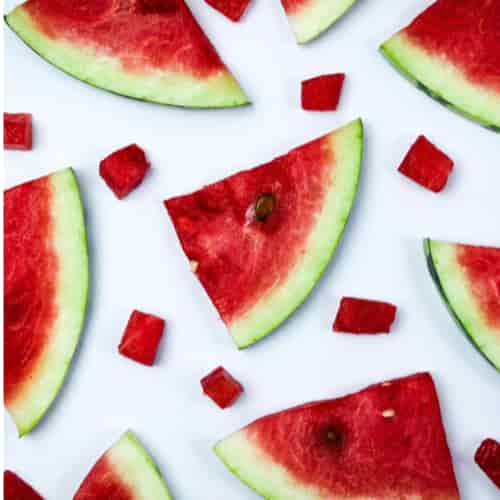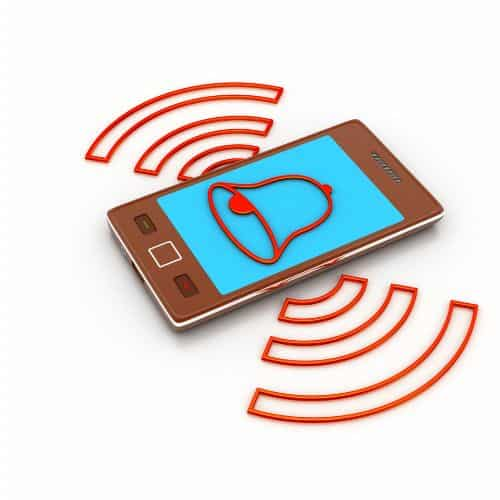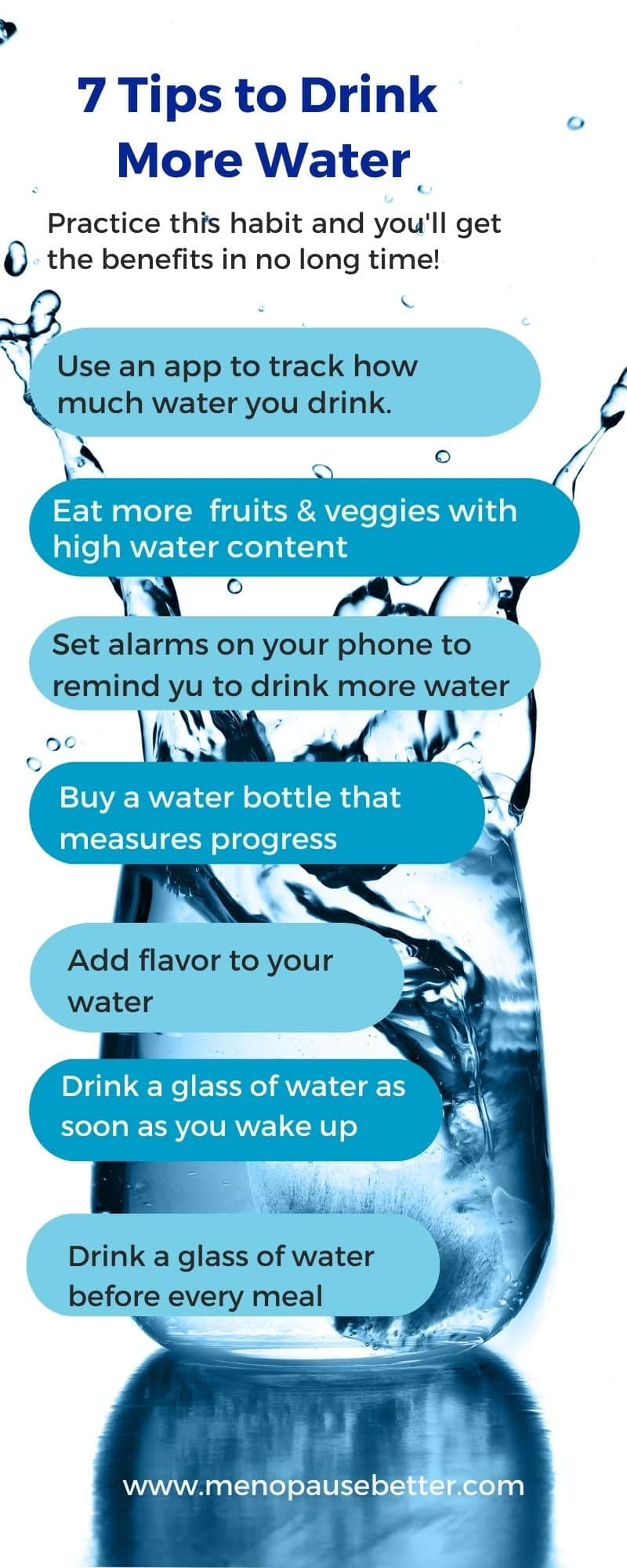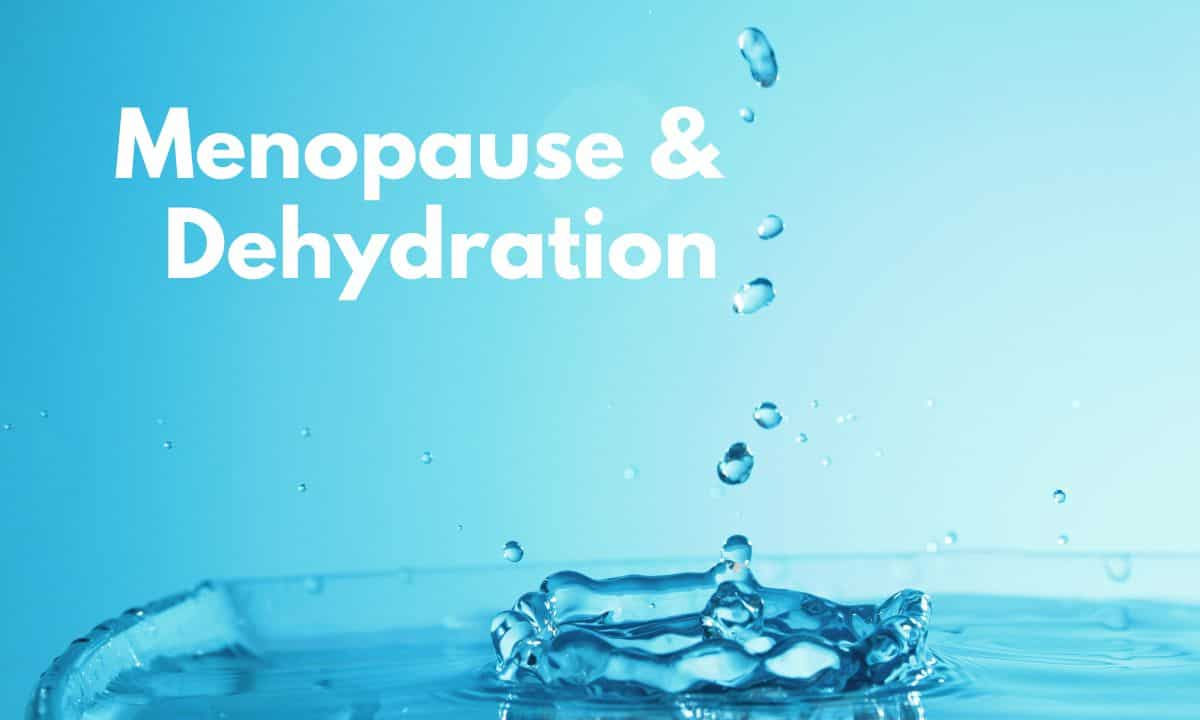Menopause and Dehydration: Is There a Link?
If you’re experiencing menopause, you may be dealing with a number of new and unexpected symptoms.
Table of Contents
ToggleOne issue that many women don’t realize can be caused by menopause is dehydration.
Dehydration can lead to a variety of other health problems, so it’s important to understand the causes and solutions.
Causes of Dehydration During Menopause
Female hormones help regulate fluid balance in the body. Thus, it’s not surprising that a woman’s risk of dehydration increases when her hormones are in flux.
Additionally, women experiencing hot flashes and night sweats are losing more fluid; if it’s not replenished, this additional fluid loss will contribute to dehydration.
Aging also has an important effect on fluid balance. It’s associated with a lack of the thirst sensation and imbalanced hormones changing our fluid balance.
Finally, other causes, such as exercise and illness, can result in women losing fluids.
On the bright side, excess fluid loss is easily preventable and treatable. This blog will discuss causes and treatment options for dehydration.
Dehydration Can Worsen Menopause Symptoms
When you’re dehydrated, it will worsen any symptoms you’re experiencing, whatever they are and whatever is causing them. So it follows that problems associated with menopause will also be intensified.
For example, menopausal women often experience brain fog. At the same time, dehydration can cause headaches and light-headedness, so your ability to stay sharp and focused is further diminished.
Menopause can also cause digestive issues such as constipation and bloating. Both complaints get worse when women fail to drink enough water.
Proper hydration can also help with weight management. For one thing, thirst is often mistaken for a feeling of hunger. Also, research has shown that increasing the amount of water you drink can speed up the process by which the body converts fat to energy.
Drinking enough water is always a good idea when it comes to health!
Signs That You Are Dehydrated
There are a few signs that indicate you might be dehydrated:
- Dark or smelly urine
- Dizziness
- Fatigue
- Headache
- Increased thirst
- Dry mouth
- Inability to produce tears
- Light-headedness
If you’re experiencing any of these symptoms, it’s important to drink plenty of fluids, and see a doctor if they persist.
7 Tips to Increase Water Intake
Drinking enough water is vital for your health. But sometimes, it’s hard to remember to take a sip as often as you should. Here are some tips on how to increase water intake:
Increasing Fruit and Vegetable Intake

Did you know you can increase your water intake by eating certain foods?
Yes, you read that right! Food can provide you with some fluids. So, you can increase how much fluid you get by eating more foods with high water content.
Fruits and vegetables with high water content include the following.
Vegetables: Celery, cucumber, lettuce, zucchini, broccoli, cabbage, cauliflower, and spinach.
Fruits: Strawberries, melon, watermelon, pineapple, apples, grapes, blueberries, and oranges.
There is an App for Everything
Even a water tracker!
While the way individual apps work differs from each other, all apps of this type will remind you to drink water regularly. They also have helpful graphs to show you your progress and how much you have left to drink for the day, and they really help you to stay motivated.
In this blog post, you can find useful water-tracking apps.
Setting Alarms on Your Phone
Not a fan of apps? Setting up an alarm on your phone can be just as effective.
You can set several alarms throughout the day to keep you on track. For example, set three alarms before lunchtime and set three after lunch. This will ensure you drink at least six glasses of water a day.

Buy a Water Bottle That Measures Progress
One of my favorite tips to get you drinking more water! These bottles have markers that can help you time your water intake. They come in a wide range of styles and colors to suit your own style and make drinking more water fun.
Add Flavor to Your Water
We know that water may be boring at times, but you can add some flavor to it. Here are some of our favorite tasty additions:

Cucumber – add fresh slices of cucumber
Strawberry mint – add slices of fresh strawberries and fresh mint leaves
Raspberry basil – add fresh raspberries and fresh basil leaves
Lemon – add fresh lemon slices
Lemon lime basil – add fresh lemon and lime slices, and fresh basil leaves
Just pick your favorite fruit, cut it into slices, and you now have flavored water.
Drink a Glass of Water as Soon as You Wake Up
When you wake up in the morning, your body is already dehydrated.
That’s why it’s essential to drink a glass of water as soon as you wake up. This will help to rehydrate your body and make up for the fluids you lost overnight.
Plus, it will keep you motivated to continue drinking water throughout the day.
If you want, you can also add some lemon slices to your water for an extra boost of flavor and vitamins.
Drink a Glass of Water Before Every Meal
Do you drink water before, during, or after you eat? There is no right or wrong answer. But we recommend that you drink a glass before your meals. Not only will this habit ensure you’re drinking plenty of fluid, but it also helps enhance the feeling of fullness.

The Bottom Line
Drinking water is important for everyone, but it’s especially crucial during menopause.
Dehydration can lead to a number of health issues, so it’s important to be aware of the signs and symptoms and take steps to increase your fluid intake before problems start.
We hope this blog post has helped you learn more about dehydration and how to drink more water. What are some of your favorite tips for increasing water intake?
“Menopause and Dehydration: Is There a Link” was written in collaboration with Registered Dietitian Alyssa Alyssa Maranges.

Dr. Su-Nui Escobar, a Registered Dietitian/Nutritionist in Miami, FL, is dedicated to empowering women in perimenopause and menopause to live healthier, more satisfying lives.
With a doctorate in clinical nutrition from the University of North Florida, she has expertise in menopause and weight loss, including the unique challenges faced by those on weight loss medications.
Su-Nui’s passion for her field is evident in her previous role as the Academy of Nutrition and Dietetics spokesperson.


